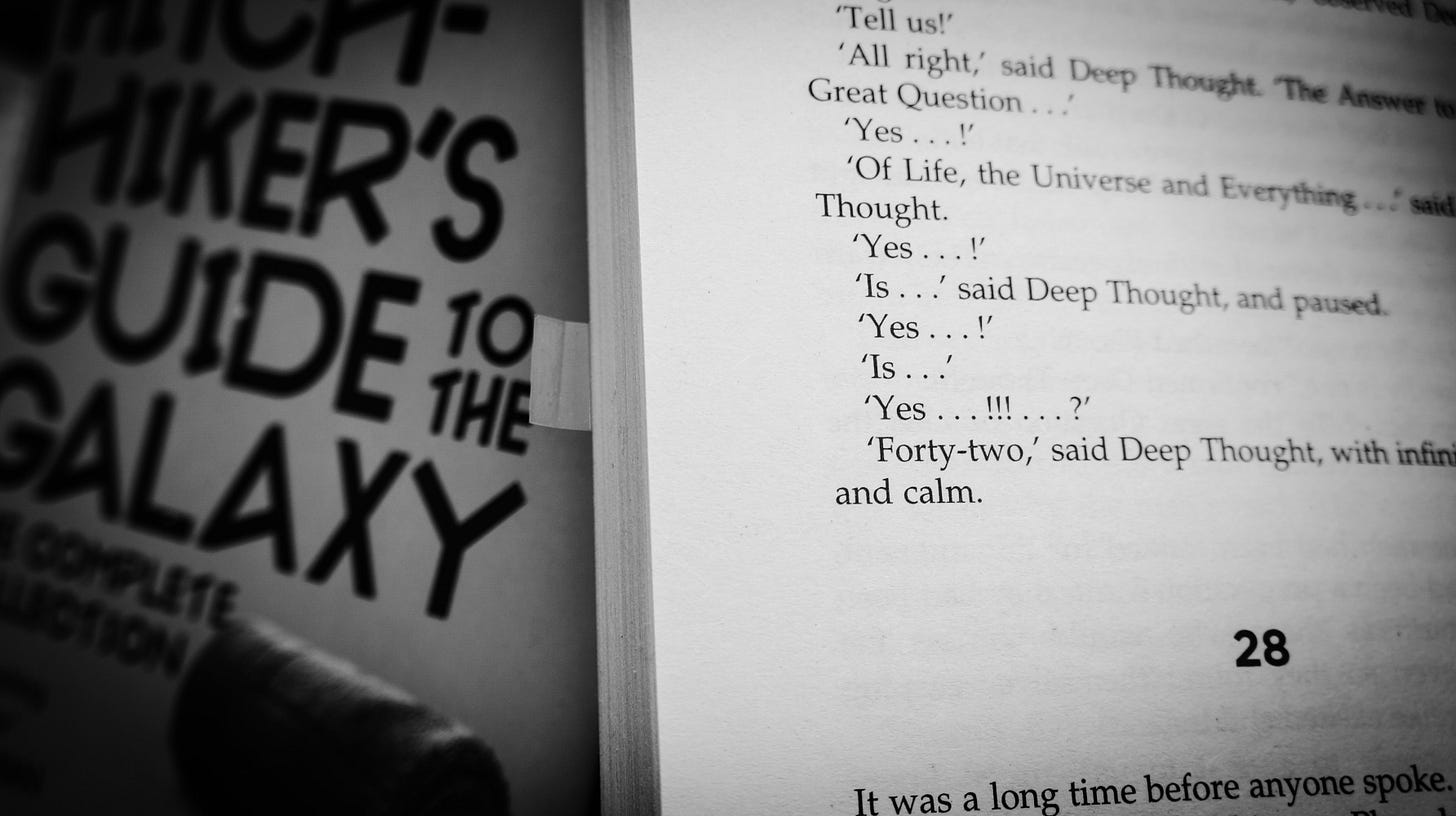Will we ever Know?
Rhyming Notes on Philosophy #01
Will we ever know
what is to know
and if we knew
would we know we knew?
If mankind is able to find
to resolve, to forever be known:
the ultimate answer to life,
the metaphysical philosopher's stone.
If that’s the case, will man than
comprehend, understand,
or even recognize the answer
I doubt that they can.
(note it to be forty-two - I did my research, so did you?)1
Because it is this,
the urge, the surge,
the intuitive friction
that forces thought to emerge.
What can be known
can’t be understood
What we understand
can be tricked into falsehood.
Platonic references or scholastic extremists,
Descartes or Occam, they paved the road
for indirect perceptions, illusions, phenomena,
the logic empiricist wrote the next episode.
Then analytic hope for a solution
emerged as lights began to shine.
Only to die in disillusion,
contextual language without a spine.
Der Satz ist ein Bild der Wirklichkeit2,
did promise more than it brought,
more dimensions came in sight,
Just more “is’s” without any ought3.
What (good) is (good) philosophy,
what gaps to bridge or to explore,
and what’s its goal, “what is - that is”?
But for you who cares, I shall write more.
Because I render a solution
to promote this art of thought,
it demarcates other sciences,
splices the conceptual Gordian knot.
It is all that all is not,
the interconnector, dark-age Ether,
The mother of science
and the ground beneath her.
It’s the only constant in all questions,
it is the essence of the question mark.
After erasing all known knowledge,
Philosophy rises as Noah’s ark.
All hail to the only Science,
that is intrinsic in being man
that surrounds the human life,
it ends where it all began.
A baby nor a dying man,
will ask for maths or wonder why
capitalism fails or bitcoin rises,
they both just ask : Who am I?
What can we know, and why would we want to know? What is the use of philosophy, and what is good philosophy? This is a question within the domain we call Meta Philosophy. In his 1978 essay "The purpose of Philosophy", Isaiah Berlin (1909-1997) gives us a first idea.
What sets aside philosophy is the fact that the questions do not have a clear pointer to the way in which the answer can be found. There is neither a set of data to get to a factual answer nor rules to get to a formal answer. These questions which can not be answered by observation or calculation, for which the internet does not provide us a solution, these general questions which so often lead to questions of principle, these questions are philosophical. And, moreover, a large part of the history of human knowledge is the quest to clarify those obscure questions well enough to transform them to fit in an empirical or formal discipline.
In this ode to philosophy, I praise it as the mother of all science and its foundation. It is the essence of the question mark on every question, it surrounds the human life. We are all philosophers, but not all of us have the urge to make it a profession. As Berlin states: "Men cannot live without seeking to describe and explain the universe to themselves.", however, they need philosophers to "assist men to understand themselves and thus operate in the open, and not wildly, in the dark" (Berlin 1978).
When asked what the purpose of philosophy might be, I would answer what I hope it to be: a helpful force to guise humankind towards an inclusive society away from racism, poverty and narcissistic entitled capitalism. And if this is true, then I must conclude: it failed. But never call the game halfway the race, so let this be our motivation to proceed in uncertain ventures of thought and doubt. Let us philosophize!
"Note it to be forty-two" : The ultimate answer to life, the universe and everything, Hitchhiker's Guide to the galaxy by Douglas Adams.
"Der Satz ist ein Bild der Wirklichkeit": Ludwig Wittgenstein, 4.01 & 4,021 in Tractatus Logico-Philosophicus in his try to limit the reality (better: the thinking about reality) to what can be expressed in language.
"Just more "is's" without any ought" : The is-ought problem, attributed to David Hume in his 1739 Treatise of Human Nature, shows that there is a gap between statements on what is (not) and statement about what ought (not) to be.




